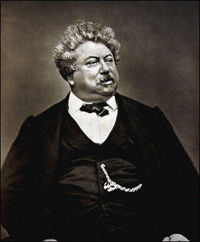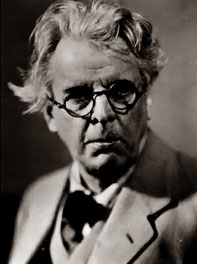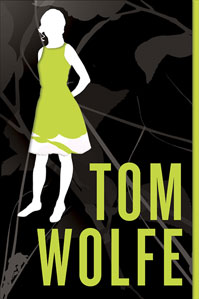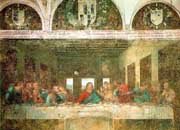synecdoche – n - A figure of speech in which a part is used for the whole or the whole for a part, the special for the general or the general for the special.
Prime examples would be the popular Civil War command to give the enemy the "cold steel" (general), meaning to use the bayonet (particular); the naval command "All 'hands' (part) on deck," meaning all crew men (whole) on deck; etc.
Monday, November 06, 2006
Friday, November 03, 2006
fillip
fillip - verb - to strike with the nail of a finger snapped from the end of the thumb.
When I was a kid, we called this behavior a thump.
When I was a kid, we called this behavior a thump.
Extreme Unction
extreme unction n - The rite formerly in practice in which a Roman Catholic priest anointed and prayed for a sick or injured person, especially one in danger of death. In 1972 the name and rite were changed to Anointing of the Sick.
I was inspired to use this word after talking to a Baptist friend who believed that the Catholic Church taught that those who died without receiving Extreme Unction (also known as last rites) would be condemned to hell. The woman I spoke to is a good Christian, but she was badly misinformed. I would guess that most Catholics die without receiving the last rites and without even having an opportunity to recieve them, e.g., soldiers killed in combat, people killed in accidents, people who die from sudden heart attacks (like my father), etc.
The Catholics recognize seven sacraments: baptism, confirmation, holy eucharist (communion), penance, extreme unction (anointing of the sick), holy orders (becoming a priest, etc.), and matrimony. Lutherans recognize only baptism, holy eucharist, and penance. I don't know about other denominations, but I'd love to find out.
(I've been considering the possibility of another ecumenical council, this time with the objective of reuniting all Christian churches. What we have in common is so much more important than what divides us. The first step would be to have the pope revert to being the bishop of Rome. Any thoughts on this?)
I was inspired to use this word after talking to a Baptist friend who believed that the Catholic Church taught that those who died without receiving Extreme Unction (also known as last rites) would be condemned to hell. The woman I spoke to is a good Christian, but she was badly misinformed. I would guess that most Catholics die without receiving the last rites and without even having an opportunity to recieve them, e.g., soldiers killed in combat, people killed in accidents, people who die from sudden heart attacks (like my father), etc.
The Catholics recognize seven sacraments: baptism, confirmation, holy eucharist (communion), penance, extreme unction (anointing of the sick), holy orders (becoming a priest, etc.), and matrimony. Lutherans recognize only baptism, holy eucharist, and penance. I don't know about other denominations, but I'd love to find out.
(I've been considering the possibility of another ecumenical council, this time with the objective of reuniting all Christian churches. What we have in common is so much more important than what divides us. The first step would be to have the pope revert to being the bishop of Rome. Any thoughts on this?)
Thursday, November 02, 2006
ziggurat

ziggurat – n - A temple of Sumerian origin in the form of a pyramidal tower, consisting of a number of stories and having about the outside a broad ascent winding round the structure, presenting the appearance of a series of terraces.
I'm not going to try to match WolfJB's last entry. I'll just note that the Tower of Babel is the most famous example of a ziggurat and let it go at that. (The picture shows a reconstruction of Ur-Nammo, completed in the early 21st century BC, in what is now Iraq.)
Wednesday, November 01, 2006
quality
quality - noun - character with respect to fineness, or grade of excellence; high grade; superiority; excellence; native excellence or superiority
Have you noticed how this word, in my generation anyway, seems to be something which can't be quantitatively defined, and therefore is unattainable?
It wasn't that long ago when Cadillac was the premier car built in the world. So much so, in fact, that it became an adjective for describing other things of high quality. A real cadillac of a gun, for example, was finely made with a smooth action and high accuracy. Attention detail in every facet. Before Cadillac, it was Buick.
Then came the dark ages of automation, the Vietnam war, the 1960's and downsizing.
Remember the times when a man's word was as good as a contract in paper and a handshake was as binding as the signature thereon? You knew you could count on that person to follow through on the commitment made by just a statement and a handshake. I can remember my dad telling me the most important thing I had to give someone else was my 'word', meaning my commitment to accomplish a task.
Then came the dark ages of automation, the 1980's, robots, a global economy and downsizing.
And what about those days when excellence was a way of life? We put men on the moon. We did it with people who had tested every component of those spacecraft repeatedly enough to define them as perfect. And even when they failed, there was a backup system the engineers on the ground could tell the guys in space to use while they debugged the failed system. Recall the moon is 186,000 miles from the earth. How about that for a long distance tech support call! Who remembers the old Ford commercials declaiming 'Quality is job 1', yet for most people at that time, Ford stood for Fix Or Repair Daily.
Then came the dark ages of consumerism, a global economy and laziness.
As a culture of people we have become more aware of our bottom line and outsourcing to other countries to lower cost at the expense of quality and expecting people here to just accept it (which we have) and go on with life. It's no longer important to companies to not screw stuff up. They just go on and we all wonder where our product is or why we don't have it, but then just shrug and go on because that's life. If we do call the company that screwed up, we get the nice voice on the other end that apologizes for the inconvenience and will send out, or fix our problem at their next available opportunity. They do it so often, they even have a script for it. They do it so often they train their lowliest phone people how to read the script with the correct tone of voice, and if you need to get the problem resolved right now, you have to go up the food chain four or five levels. We have become a lazy, complacent people. We are too lazy to do for ourselves when we can just hire illegal (uh, I mean undocumented) workers for less than half the cost of paying someone else to do a quality job. We have lost touch with what has, in a lot of ways, made America great. We are so blasted stinking rich around here we can live with high debt ratios just to have luxury of being lazy. No longer is someone's 'word' good enough, we have to have complex legal instruments describing exactly how we are going to screw the other guy when the other guy doesn't deliver on what they said they are going to do.
In the past, the words 'good enough' just weren't good enough. Excellence was the bar and quality was it's measure. These days, mediocrity is the bar and never mind measuring it.
Have you noticed how this word, in my generation anyway, seems to be something which can't be quantitatively defined, and therefore is unattainable?
It wasn't that long ago when Cadillac was the premier car built in the world. So much so, in fact, that it became an adjective for describing other things of high quality. A real cadillac of a gun, for example, was finely made with a smooth action and high accuracy. Attention detail in every facet. Before Cadillac, it was Buick.
Then came the dark ages of automation, the Vietnam war, the 1960's and downsizing.
Remember the times when a man's word was as good as a contract in paper and a handshake was as binding as the signature thereon? You knew you could count on that person to follow through on the commitment made by just a statement and a handshake. I can remember my dad telling me the most important thing I had to give someone else was my 'word', meaning my commitment to accomplish a task.
Then came the dark ages of automation, the 1980's, robots, a global economy and downsizing.
And what about those days when excellence was a way of life? We put men on the moon. We did it with people who had tested every component of those spacecraft repeatedly enough to define them as perfect. And even when they failed, there was a backup system the engineers on the ground could tell the guys in space to use while they debugged the failed system. Recall the moon is 186,000 miles from the earth. How about that for a long distance tech support call! Who remembers the old Ford commercials declaiming 'Quality is job 1', yet for most people at that time, Ford stood for Fix Or Repair Daily.
Then came the dark ages of consumerism, a global economy and laziness.
As a culture of people we have become more aware of our bottom line and outsourcing to other countries to lower cost at the expense of quality and expecting people here to just accept it (which we have) and go on with life. It's no longer important to companies to not screw stuff up. They just go on and we all wonder where our product is or why we don't have it, but then just shrug and go on because that's life. If we do call the company that screwed up, we get the nice voice on the other end that apologizes for the inconvenience and will send out, or fix our problem at their next available opportunity. They do it so often, they even have a script for it. They do it so often they train their lowliest phone people how to read the script with the correct tone of voice, and if you need to get the problem resolved right now, you have to go up the food chain four or five levels. We have become a lazy, complacent people. We are too lazy to do for ourselves when we can just hire illegal (uh, I mean undocumented) workers for less than half the cost of paying someone else to do a quality job. We have lost touch with what has, in a lot of ways, made America great. We are so blasted stinking rich around here we can live with high debt ratios just to have luxury of being lazy. No longer is someone's 'word' good enough, we have to have complex legal instruments describing exactly how we are going to screw the other guy when the other guy doesn't deliver on what they said they are going to do.
In the past, the words 'good enough' just weren't good enough. Excellence was the bar and quality was it's measure. These days, mediocrity is the bar and never mind measuring it.
doublet

doublet – n - A close-fitting outer garment, with or without sleeves and sometimes having a short skirt, worn by men in the Renaissance; an undergarment, quilted and reinforced with mail, worn beneath armor.
Look for more Three Musketeers related words in the near future. Dumas's novel is exhibit A in my argument that classic literature need not be dull.
Tuesday, October 31, 2006
ague
ague - noun - a fit of fever or shivering or shaking chills, accompanied by malaise, pains in the bones and joints, etc.; chill
quaint
quaint –adj - Having an old-fashioned attractiveness or charm; oddly picturesque; strange, peculiar, or unusual in an interesting, pleasing, or amusing way.
I have nothing to say about today's word other than to note that I find quaint things, whether houses, ideas, or people, very likeable.
I have nothing to say about today's word other than to note that I find quaint things, whether houses, ideas, or people, very likeable.
Monday, October 30, 2006
impudent
impudent – adj - Of, pertaining to, or characterized by impertinence or effrontery.
I was thinking about my misspent youth over the weekend, and I recalled that impudence was a charge often laid against us when we were young, e.g., "Of all the impudent tricks, this one takes the cake!"
Aside to Jeff: Dumas wrote two sequels to The Three Musketeers, Twenty Years After and The Man in the Iron Mask. Have you read either of them, and, if you have, what did you think? I got TTM for Christmas in 1960, and I almost literally couldn't put it down; I remember reading it in the car, in my room (under the covers with a flashlight), and even soaking in the bathtub. As soon as I finished, I was off to the library for TYA, but I just couldn't get into it. All I remember is that one of the musketeers (Aramis?) had taken Holy Orders and become a monk or priest. I was just a kid at the time, so maybe I'd like it better now. How say you?
Still another tangent: I've just realized that one reason I never excel at anything is that I have too many interests and am constantly bouncing from one to the other. For example, right now I'm moving back and forth among church history, medieval culture, Alexander Dumas (pere, not fils), finishing Shakespeare's plays, poems, and sonnets, and English literature in general (which includes American literature, so maybe I should say English language literature). And that's aside from raising two children and earning a living. What's an aspiring polymath to do?
I was thinking about my misspent youth over the weekend, and I recalled that impudence was a charge often laid against us when we were young, e.g., "Of all the impudent tricks, this one takes the cake!"
Aside to Jeff: Dumas wrote two sequels to The Three Musketeers, Twenty Years After and The Man in the Iron Mask. Have you read either of them, and, if you have, what did you think? I got TTM for Christmas in 1960, and I almost literally couldn't put it down; I remember reading it in the car, in my room (under the covers with a flashlight), and even soaking in the bathtub. As soon as I finished, I was off to the library for TYA, but I just couldn't get into it. All I remember is that one of the musketeers (Aramis?) had taken Holy Orders and become a monk or priest. I was just a kid at the time, so maybe I'd like it better now. How say you?
Still another tangent: I've just realized that one reason I never excel at anything is that I have too many interests and am constantly bouncing from one to the other. For example, right now I'm moving back and forth among church history, medieval culture, Alexander Dumas (pere, not fils), finishing Shakespeare's plays, poems, and sonnets, and English literature in general (which includes American literature, so maybe I should say English language literature). And that's aside from raising two children and earning a living. What's an aspiring polymath to do?
Friday, October 27, 2006
stertorous
stertorous - adj - characterized by heavy snoring
After a long week of work, I nearly feel as if I'd been running a marathon, so my sleep must be characterized by this type of breathing. We had the unfortunate event of letting go of one of the contractors, so I have had to pick up his work. Hence my absence on this list recently. I hope to return in full force next week.
After a long week of work, I nearly feel as if I'd been running a marathon, so my sleep must be characterized by this type of breathing. We had the unfortunate event of letting go of one of the contractors, so I have had to pick up his work. Hence my absence on this list recently. I hope to return in full force next week.
syncretism

syncretism – n - The attempted reconciliation or union of different or opposing principles, practices, or parties, as in philosophy or religion.
I suppose a religious example might be the Anglican religion, which was at one time the 'via media' ('middle way' as C S Lewis described it) between Catholicism and most Protestant churches. In philosophy, Immanuel Kant's Critique of Pure Reason attempted to reconcile rationalism and empiricism.
Today's tangent is directed at Jeff, although it interested me as much as I hope it will interest Natalie too. The London Times has a review by Antonia Fraser of a new translation of Alexander Dumas's classic, The Three Musketeers; she's inspired me to give the novel a long overdue re-reading. Here's a sample:
"Why is Dumas’ tale imperishable? First The Three Musketeers has strong elements of a fairytale: one founded on a quest. D’Artagnan is the provincial youth who sets out on a despicable yellow nag, armed with nothing but a letter of introduction to M de Tréville, head of the King’s Musketeers – a letter that is almost immediately stolen. He is handsome, naive and aggressive. It goes without saying that the three musketeers, Athos, Aramis and Porthos, are expert swordsmen, and extremely quick on the draw. D’Artagnan, no slouch himself — “you walking sword blade” is a not inappropriate comment — has scarcely encountered them when he has challenged all three to a series of duels. He finally wins through to his heart’s desire and becomes a musketeer.
"Secondly, the plotting is good and the pace terrific. Although we know from the history books that the Duke of Buckingham will be assassinated by a man named John Felton, we still thrill to the tale of Felton’s seduction by the wicked Milady and hope that she will somehow be frustrated."
Check out the whole thing at http://www.timesonline.co.uk/article/0,,923-2400897,00.html.
Wednesday, October 25, 2006
equivocate

equivocate – v - To use ambiguous or unclear expressions, usually to avoid commitment or in order to mislead; prevaricate or hedge.
This is the essence of modern political speech. A prime example would be John Kerry's answer to a question on abortion during the 2004 sound-bite-exchange. He claimed that as a Roman Catholic he disapproved, but he didn't feel he could impose his personal morality on others. Even forgetting the fact that many if not most laws impose morality on others, his answer was laughable. Here's a man who claims to be a Catholic, but who divorced his first wife, lived with his current wife before marrying her, and, when he did finally get around to that technicality, married her in a civil ceremony. Need I mention that every one of those acts violated Catholic teachings? In the eyes of the church he's not married; he also has at least three sins to confess if he ever finds it convenient to indulge in the sacrament of Penance. More than incidentally, if he receives Communion without Penance, he can add another mortal sin to the list. At least he was capable of putting together a coherent English sentence.
Monday, October 23, 2006
orgiastic
orgiastic - adj - of, pertaining to, or having the nature of an orgy; tending to arouse or excite unrestrained emotion; reaching a peak of emotional intensity, often of an ecstatic nature and frequently expressed by uninhibited behavior
I'll just let your imagination roam on this one...
I'll just let your imagination roam on this one...
serging
serging - the process of overcasting the raw edges of a piece of fabric (as a carpet) to prevent raveling
Serging and overcasting are similar, so here's what wikipedia says about serging that also throws in a little about overcasting:
Serging: trimming the edge of fabric and overcasting all in one step, sometimes with the option of stitching as well. Also used for creating artistic effects. Serging is ideal for stretchy fabrics or fabrics that should have neat edges. Virtually all commercially-sold clothing is completely made with one or more specialized industrial sergers.
Here's where some serging has come undone:

Serging and overcasting are similar, so here's what wikipedia says about serging that also throws in a little about overcasting:
Serging: trimming the edge of fabric and overcasting all in one step, sometimes with the option of stitching as well. Also used for creating artistic effects. Serging is ideal for stretchy fabrics or fabrics that should have neat edges. Virtually all commercially-sold clothing is completely made with one or more specialized industrial sergers.
Here's where some serging has come undone:

Friday, October 20, 2006
ex officio

ex officio - adv, adj - By virtue of office or position.
I have nothing in particular to say about this term, so I'll give an example and move on: The president of the United States is ex officio commander in chief of the military.
Now on to Dante Alighieri (1265-1321). The most widely read part of his Comedy is Inferno (you should read the whole thing), and the best known part of Inferno is the inscription above the gates of Hell:
Through me you pass into the city of woe:
Through me you pass into eternal pain:
Through me among the people lost for aye.
Justice the founder of my fabric mov'd:
To rear me was the task of power divine,
Supremest wisdom, and primeval love.
Before me things create were none,
save thingsEternal, and eternal I endure.
All hope abandon ye who enter here.
Dante's Hell has nine circles, each more terrifying than the last. The ninth circle is reserved for traitors. There we find Satan gnawing eternally on Judas, Brutus, and Cassius.
I've read the Comedy twice, and I'm not done with it yet. I've also read the Inferno with my son Michael as part of his education. There are many good English translations; I use the one by Mark Musa in the Portable Dante. Check out the notes and commentary provided before you select a version to read; the poem contains names and references that would have been common knowledge to Dante's contemporaries, but which a modern reader (myself included) probably won't get.
Dante's Comedy gives a powerful picture of the world as seen by an educated man of the High Middle Ages. I can't recommend it too strongly. (Note: The poem is usually published as The Divine Comedy, but Dante's title was simply La Commedia. How's that for pedantic?)
Thursday, October 19, 2006
qua
qua - adv - as; as being; in the character or capacity of
This word seems to need commas surrounding it. For example: 'The President, qua commander in chief, may call on the Marines in time of need'.
This word seems to need commas surrounding it. For example: 'The President, qua commander in chief, may call on the Marines in time of need'.
consanguinity

consanguinity –noun - Relationship by descent from a common ancestor; kinship; close relationship or connection.
Another five-syllable word!
I think the rule has been relaxed, but the Catholic church long forbade marriage in cases where the two parties had a common ancestor within seven generations.
And now, for (I hope) your amusement, here's an excerpt in middle-English of publisher William Caxton's preface to Sir Thomas Malory's (1405-1471) Le Morte D'Arthur. My daughter flew into a rage after reading this; "He'd get an F in my school!" etc.
AFter that I had accomplysshed and fynysshed dyuers hystoryes as wel of contemplacyon as of other hystoryal and wordly actes of grete conquerours & prynces / And also certeyn bookes of ensaumples and doctryne / Many noble and dyuers gentylmen of thys royame of Englond camen and demaunded me many and oftymes / wherfore that I haue not do made & enprynte the noble hystorye of the saynt greal / and of the moost renomed crysten kyng / Fyrst and chyef of the thre best crysten and worthy / kyng Arthur / whyche ought moost to be remembred emonge vs englysshe men tofore al other crysten kynges / For it is notoyrly knowen thorugh the vnyuersal world / that there been ix worthy & the best that euer were / That is to wete thre paynyms / thre Iewes and thre crysten men / As for the paynyms they were tofore the Incarnacyon of Cryst / whiche were named / the fyrst Hector of Troye / of whome thystorye is comen bothe in balade and in prose / The second Alysaunder the grete / & the thyrd Iulyus Cezar Emperour of Rome of whome thystoryes ben wel kno and had / And as for the thre Iewes whyche also were tofore thyncarnacyon of our lord of whome the fyrst was Duc Iosue whyche brought the chyldren of Israhel in to the londe of byheste / The second Dauyd kyng of Iherusalem / & the thyrd Iudas Machabeus of these thre the byble reherceth al theyr noble hystoryes & actes / And sythe the sayd Incarnacyon haue ben thre noble crysten men stalled and admytted thorugh the vnyuersal world in to the nombre of the ix beste & worthy / of whome was fyrst the noble Arthur / whos noble actes I purpose to wryte in thys present book here folowyng / The second was Charlemayn or Charles the grete / of whome thystorye is had in many places bothe in frensshe and englysshe / and the thyrd and last was Godefray of boloyn / of whos actes & lyf I made a book vnto thexcellent prynce and kyng of noble memorye kyng Edward the fourth / the sayd noble Ientylmen Instantly requyred me temprynte thystorye of the sayd noble kyng and conquerour kyng Arthur / and of his knyghtes wyth thystorye of the saynt greal / and of the deth and endyng of the sayd Arthur / Affermyng that I out rather tenprynte his actes and noble feates / than of godefroye of boloyne / or ony the other eyght / consyderyng that he was a man borne wythin this royame and kyng and Emperour of the same / And that there ben in frensshe dyuers and many noble volumes of his actes / and also of his knyghtes / To whome I answerd / that dyuers men holde oppynyon / that there was no suche Arthur / and that alle suche bookes as been maad of hym / ben fayned and fables / by cause that somme cronycles make of hym no mencyon ne remembre hym noo thynge ne of his knyghtes / wherto they answerd / and one if specyal sayd / that in hym that shold say or thynke / that there was neuer suche a kynge callyd Arthur / myght wel be aretted grete folye and blyndenesse / For he sayd that there were many euydences of the contrarye / Fyrst ye may see his sepulture in the monasterye of Glastyngburye / And also in polycronycon in the v book the syxte chappytre / and in the seuenth book the xxiij chappytre/ where his body was buryed and after founden and translated in to the sayd monasterye / ye shal se also in thystorye of bochas in his book de casu principum / parte of his noble actes / and also of his falle / Also galfrydus in his brutysshe book recounteth his lyf / and in dyuers places of Englond / many remembraunces ben yet of hym and shall remayne perpetuelly / and also of his knyghtes.
Wednesday, October 18, 2006
scurrilous
scurrilous - adj - grossly or obscenely abusive; characterized by or using buffoonery; coarsely jocular or derisive.
I think of this word while reading parts of the 'Lord of the Flies', of which, unfortunately, I have no excerpt as an example. Perhaps Jack has one handy...
I think of this word while reading parts of the 'Lord of the Flies', of which, unfortunately, I have no excerpt as an example. Perhaps Jack has one handy...
ex cathedra
ex cathedra - adj, adv - from the seat of authority; with authority: used esp. of those pronouncements of the pope that are considered infallible.
English is an eclectic language. First there were the Britons, then the Angles and Saxons came, then the Danes, then the Normans, and then - I can't go on; if you're interested, check out Melanie Phillips's book Londonistan. What is being done to Europe - or should I say Eurabia? - is one of the greatest civilizational (neologism?) crimes in history. At least the Romans put up a fight. (By the way, if what I've just said is racist or xenophobic, make the most of it. One thing I'll say for Cultural Marxism is that it's a great vocabulary builder.)
English is an eclectic language. First there were the Britons, then the Angles and Saxons came, then the Danes, then the Normans, and then - I can't go on; if you're interested, check out Melanie Phillips's book Londonistan. What is being done to Europe - or should I say Eurabia? - is one of the greatest civilizational (neologism?) crimes in history. At least the Romans put up a fight. (By the way, if what I've just said is racist or xenophobic, make the most of it. One thing I'll say for Cultural Marxism is that it's a great vocabulary builder.)
Tuesday, October 17, 2006
disingenuous
disingenuous – adj - Lacking in frankness, candor, or sincerity; falsely or hypocritically ingenuous; insincere.
This is one of our more frequently used five-syllable words.
Tangent: My life took a turn for the better once I finally learned to say two things:
1) "I don't know."
2) "I was wrong."
Now if only my older son would learn to say them there would be a massive change in the quality of both our lives. (Come to think of it, he often strikes me as disingenuous; maybe this isn't a tangent after all.)
This is one of our more frequently used five-syllable words.
Tangent: My life took a turn for the better once I finally learned to say two things:
1) "I don't know."
2) "I was wrong."
Now if only my older son would learn to say them there would be a massive change in the quality of both our lives. (Come to think of it, he often strikes me as disingenuous; maybe this isn't a tangent after all.)
Monday, October 16, 2006
indomitable
indomitable - adj - incapable of being subdued or overcome; unconquerable
Tagging along with Jack here, in a different way. Often, an austere person is seen as indomitable either due to their sternness, or strict discipline.
Tagging along with Jack here, in a different way. Often, an austere person is seen as indomitable either due to their sternness, or strict discipline.
austere

austere – adj - Severe in manner or appearance; uncompromising; strict; forbidding.
Tangent: Is it acceptable to lie when it's done on behalf of a worthy cause? On the other hand, why would a worthy cause need lies to support it?
Tangent: The painting is John Singer Sargent's portrait of the daughters of Edward Darly Boit (1882). Recent commentary on this painting by a tenured academic whose name I've forgotten provides some insight into what's wrong with modern humanities. The appreciation of beauty has been cast aside in favor of the search for sexism, racism, homophobia, classism, etc. In other words, works are judged on their conformity to standards set by cultural Marxism, better known as political correctness.
First, the claim is made that the girls are mere objects. The reasoning is that they have no names! Well, a minute's search on the internet established that they do have names; standing left-to-right are Mary Louise (age eight), Florence (14), and Jane (12); the one sitting is Julia (four).
Second, the girls are wearing uniforms! (I'm not making this up.) As a matter of fact, they're wearing standard Gilded Age girl clothes: pinafores and opaque stockings. If the men in the house had been included in the portrait, you might conclude that they were wearing uniforms too.
Third - and most important - look at little Julia. Notice that her legs are spread, and what's that between them? A baby! Get it? Huh? Huh? Huh?
God save us.
Friday, October 13, 2006
concinnity
concinnity - noun - internal harmony or fitness in the adaptation of parts to a whole or to each other; elegance, especially of the literary style.
See, I would have used this to describe one of the most beautiful forms found in creation, however it seems this word applies more to literature.
See, I would have used this to describe one of the most beautiful forms found in creation, however it seems this word applies more to literature.
de riguer

de rigueur - adj - Required by the current fashion or custom; socially obligatory.
This term was in very common use when I was growing up in New York. I now wonder how this bit of French got started in an area mostly populated by blue collar Irish and Italians. As Nelson Muntz said, "It's one of those things we'll never know, like what's the square root of a million."
Thursday, October 12, 2006
brutalize

brutalize - v - To make cruel, harsh, or unfeeling; to treat cruelly or harshly.
This is one of my uglier entries.
I am not an enthusiast for true crime stories, but three murder cases have long fascinated me, viz., the Jack the Ripper murders of 1888, the Lizzie Border case of 1892, and the Black Dahlia horror of 1947. What all three cases have in common is that there is doubt about the identity of the murderer. I am now satisfied that Lizzie Borden did indeed murder her father Andrew and her stepmpther Abby on that hot August day in Fall River, Massachusetts. I am also persuaded, after reviewing research by novelist Patricia Cornwell, that impressionist painter Walter Sickert was the Ripper. The one case that remains a mystery is the Black Dahlia murder. (Warning: This post may be unsettling from this point on; I have often wished I'd never hear of the Black Dahlia.)
On a January morning in 1947, a mother and her three-year-old daughter were walking past a field in Los Angeles when the mother saw what she thought was a broken mannequin. On closer inspection, the mannequin turned out to be the naked body of a young woman. The body had been cut in half at the waist and been horribly - what's the right word? - mutilated? defiled? Words fail me. The corpse was identified as that of a pretty Massachusetts girl named Elizabeth Short. Betty Short was in her mid-20s; she had come to Hollywood, like many other pretty girls, to get into movies. She did attain fame, but not the kind she sought. The autopsy revealed that she had been tortured to death over a period of 24 to 36 hours. Her body had then been sawed in half, washed clean of blood, and dumped in that field.
The police launched a massive manhunt, a virtually door-to-door search for the murderer, without success. The identity of the Black Dahlia killer is still a mystery.
The case has inspired at least two novels, John Gregory Dunne's True Confessions and James Ellroy's The Black Dahlia, both of which have been made into movies. I've seen True Confessions (with Robert Duvall and Robert De Niro), but I'm actually afraid of watching The Black Dahlia. If either of you have seen it, I'd love to hear your review.
Wednesday, October 11, 2006
disparage
disparage - verb - to speak of or treat slightingly; depreciate; belittle; to bring reproach or discredit upon; lower the estimation of
magus

magus - n - A member of the Zoroastrian priestly caste of the Medes and Persians; In the New Testament, one of the wise men from the East, traditionally held to be three, who traveled to Bethlehem to pay homage to the infant Jesus; A sorcerer; a magician.
The three magi are an integral part of the Christmas story. Guided by a star they came to Bethlehem bearing gifts of gold, frankincense, and myrrh for the newborn King. I miss them as I miss the rest of the Nativity stories and songs that were not so long ago associated with what has now become a generic winter holiday. Jingle Bells and Frosty the Snowman are still acceptable, but Silent Night and O Come All Ye Faithful have been banished from the airwaves. I find it interesting that the last-named song was commonly sung in Latin (Adeste Fideles), at least in the New York metropolitan area where I grew up. As for the three magi, they have a Christmas carol of their own:
We three kings of Orient are;
Bearing gifts we traverse afar,
Field and fountain, moor and mountain,
Following yonder star.
(Refrain)
O star of wonder, star of light,
Star with royal beauty bright,
Westward leading, still proceeding,
Guide us to thy perfect light.
Born a King on Bethlehem’s plain
Gold I bring to crown Him again,
King forever, ceasing never,
Over us all to reign.
(Refrain)
Frankincense to offer have I;
Incense owns a Deity nigh;
Prayer and praising, voices raising,
Worshipping God on high.
(Refrain)
Myrrh is mine, its bitter perfume
Breathes a life of gathering gloom;
Sorrowing, sighing, bleeding, dying,
Sealed in the stone cold tomb.
(Refrain)
Glorious now behold Him arise;
King and God and sacrifice;
Alleluia, Alleluia,
Sounds through the earth and skies.
(Refrain)
Tuesday, October 10, 2006
decry
decry - verb - to speak disparagingly of; denounce as faulty or worthless; express censure of; to condemn or depreciate by proclamation, as foreign or obsolete coins.
Monday, October 09, 2006
perorate
perorate - verb - to conclude or sum up a long discourse; to speak or expound at length; to declaim
amour propre

amour propre - n - Self-love; self-respect; feelings of excessive prode.
Tangent: Robert Bourke wrote a book, Slouching Toward Gomorrah, in which he identified radical individualism and radical egalitarianism as root causes of our societal ills. The title is a take-off on a line from a poem by William Butler Yeats (1865-1939).
The Second Coming
TURNING and turning in the widening gyre
The falcon cannot hear the falconer;
Things fall apart; the centre cannot hold;
Mere anarchy is loosed upon the world,
The blood-dimmed tide is loosed, and everywhere
The ceremony of innocence is drowned;
The best lack all conviction, while the worst
Are full of passionate intensity.
Surely some revelation is at hand;
Surely the Second Coming is at hand.
The Second Coming!
Hardly are those words out
When a vast image out of Spiritus Mundi
Troubles my sight: somewhere in sands of the desert
A shape with lion body and the head of a man,
A gaze blank and pitiless as the sun,
Is moving its slow thighs, while all about it
Reel shadows of the indignant desert birds.
The darkness drops again; but now I know
That twenty centuries of stony sleep
Were vexed to nightmare by a rocking cradle,
And what rough beast, its hour come round at last,
Slouches towards Bethlehem to be born?
Friday, October 06, 2006
cryptic

cryptic - adj - Mysterious in meaning; puzzling; ambiguous.
I have nothing to say about today's word, so I'll put in a plug for Edgar Lee Masters's "Spoon River Anthology," which is notable for, among other things, being one of the few poetry books that was a national bestseller, and which continues to sell today. It's a series autobiographical epitaphs for the people of Spoon River, a fictitious Illinois town. Here are two of my favorites:
Emily Sparks
Where is my boy, my boy—
In what far part of the world?
The boy I loved best of all in the school?—
I, the teacher, the old maid, the virgin heart,
Who made them all my children.
Did I know my boy aright,
Thinking of him as spirit aflame,
Active, ever aspiring?
Oh, boy, boy, for whom I prayed and prayed
In many a watchful hour at night,
Do you remember the letter I wrote you
Of the beautiful love of Christ?
And whether you ever took it or not,
My boy, wherever you are,
Work for your soul’s sake,
That all the clay of you, all of the dross of you,
May yield to the fire of you,
Till the fire is nothing but light!...
Nothing but light!
Knowlt Hoheimer
I WAS the first fruits of the battle of Missionary Ridge.
When I felt the bullet enter my heart
I wished I had staid at home and gone to jail
For stealing the hogs of Curl Trenary,
Instead of running away and joining the army.
Rather a thousand times the country jail
Than to lie under this marble figure with wings,
And this granite pedestal
Bearing the words, ”Pro Patria.”
What do they mean, anyway?
(Notes: The Battle of Missionary Ridge outside Chattanooga, Tennessee, was fought between Union forces commanded by Major General Ulysses S Grant and Confederate forces commanded by General Braxton Bragg. "Pro patria" means "for country;" it comes from a line by the Roman poet Horace [Quintus Horatius Flaccus, 65 BC - 8 BC]: "Dulce et decorum pro patria mori est [It is sweet and fitting to die for one's country].")
Thursday, October 05, 2006
opprobrium
opprobrium - noun - disgrace; infamy; reproach mingled with contempt; a cause or object of reproach or disgrace.
I love that definition - reproach mingled with contempt. What a cool way to flavor this word. Anyway, this one comes from recent history channel shows about the Knights Templar, especially at and after 1307.
I love that definition - reproach mingled with contempt. What a cool way to flavor this word. Anyway, this one comes from recent history channel shows about the Knights Templar, especially at and after 1307.
cenacle
Wednesday, October 04, 2006
mellifluous
mellifluous - adj - Sweetly or smoothly flowing; sweet-sounding.
I am nearing the end of I Am Charlotte Simmons, and it's turning out to be one of the most difficult books I've ever read. If you plan to read the book, you should stop here, because I'm about to give away a major point in the story.
Charlotte has just "gone all the way" with a notorious serial seducer because she really, truly believed that he loved her. Charlotte, having succumbed to his mellifluous words, is no longer a virgin. Having given her all, she finds that he no longer has the slightest interest in her. In fact, he's giving all the guys who'll listen every detail of his latest conquest; by Monday, it seems like everybody on campus knows, and Charlotte wishes she could die. I felt like dying along with her.
I am nearing the end of I Am Charlotte Simmons, and it's turning out to be one of the most difficult books I've ever read. If you plan to read the book, you should stop here, because I'm about to give away a major point in the story.
Charlotte has just "gone all the way" with a notorious serial seducer because she really, truly believed that he loved her. Charlotte, having succumbed to his mellifluous words, is no longer a virgin. Having given her all, she finds that he no longer has the slightest interest in her. In fact, he's giving all the guys who'll listen every detail of his latest conquest; by Monday, it seems like everybody on campus knows, and Charlotte wishes she could die. I felt like dying along with her.
Tuesday, October 03, 2006
privation
privation - noun - an act or instance of depriving; the state of being deprived of something, especially of something required or desired; destitution; need.
What we might say of someone's obvious absence from this list (although, I'm similarly guilty this week - way too busy!)
What we might say of someone's obvious absence from this list (although, I'm similarly guilty this week - way too busy!)
blitzkrieg

blitzkrieg - n - A swift, sudden military offensive, usually by combined air and mobile land forces.
Literally, "lightning war." Another German word that has entered the English-speakers vocabulary.
It wasn't known in 1939, but Germany threw virtually everything it had into its Polish invasion, which began September 1, 1939. Had Germany been attacked from the west at that time, the war in Europe may not have gone any further.
Monday, October 02, 2006
Weltanschauung

Weltanschauung - n - A comprehensive conception or image of the universe and of humanity's relation to it.
Another useful German word in common English usage.
And now, here's a question. I'm reading Tom Wolfe's novel I Am Charlotte Simmons, and I must say I'm appalled and disgusted by its picture of college life in the 21st Century. Co-ed dorms? Boys and girls together performing activities that should be private or at least confined to the same sex? Hooking-up, which means impromptu sex with someone you've just met? Courses designed to be "athlete friendly"? You've both been in college much more recently than I have, so I ask you: How much of this is true? (As for the novel, it's excellent - like every other Tom Wolfe book I've read, fiction or non-fiction. Caution: It's rated a very hard R, which couldn't be avoided given the subject.)
Friday, September 29, 2006
blandish
blandish - verb - to coax or influence by gentle flattery; cajole; to use flattery or cajolery.
No real commentary, but notice how much fun the word cajolery is to say...
No real commentary, but notice how much fun the word cajolery is to say...
dada

dada - n - the style and techniques of a group of artists, writers, etc., of the early 20th century who exploited accidental and incongruous effects in their work and who programmatically challenged established canons of art, thought, morality, etc.
The picture shows Marcel Duchamp's Fountain (1917), a prime example of dadaist "art."
To compensate, here's Edward Arlington Robinson's (1869-1935) best (in my opinion) poem:
Old Eben Flood, climbing alone one night
Over the hill between the town below
And the forsaken upland hermitage
That held as much as he should ever know
On earth again of home, paused warily.
The road was his with not a native near;
And Eben, having leisure, said aloud,
For no man else in Tilbury Town to hear:
"Well, Mr. Flood, we have the harvest moon
Again, and we may not have many more;
The bird is on the wing, the poet says,
And you and I have said it here before.
Drink to the bird."
He raised up to the light
The jug that he had gone so far to fill,
And answered huskily:
"Well, Mr. Flood,Since you propose it, I believe I will."
Alone, as if enduring to the end
A valiant armor of scarred hopes outworn,
He stood there in the middle of the road
Like Roland's ghost winding a silent horn.
Below him, in the town among the trees,
Where friends of other days had honored him,
A phantom salutation of the dead
Rang thinly till old Eben's eyes were dim.
Then, as a mother lays her sleeping child
Down tenderly, fearing it may awake,
He set the jug down slowly at his feet
With trembling care, knowing that most things break;
And only when assured that on firm earth
It stood, as the uncertain lives of men
Assuredly did not, he paced away,
And with his hand extended paused again:
"Well, Mr. Flood, we have not met like this
In a long time; and many a change has come
To both of us, I fear, since last it was
We had a drop together.
Welcome home!"
Convivially returning with himself,
Again he raised the jug up to the light;
And with an acquiescent quaver said:
"Well, Mr. Flood, if you insist, I might.
"Only a very little, Mr. Flood--For auld lang syne.
No more, sir; that will do."
So, for the time, apparently it did,
And Eben evidently thought so too;
For soon amid the silver loneliness
Of night he lifted up his voice and sang,
Secure, with only two moons listening,
Until the whole harmonious landscape rang--
"For auld lang syne."
The weary throat gave out,
The last word wavered; and the song being done,
He raised again the jug regretfully
And shook his head, and was again alone.
There was not much that was ahead of him,
And there was nothing in the town below--
Where strangers would have shut the many doors
That many friends had opened long ago.
Thursday, September 28, 2006
sanguine

sanguine - adj - Cheerfully optimistic, hopeful, or confident; reddish; ruddy.
It may also be used as a synonym for sanguinary, but I have never seen or heard it used that way.
Tangent: I am just finishing E. L. Doctorow's novel The March, about Sherman's march through Georgia and the Carolinas, and I'm about to start Tom Wolfe's novel I Am Charlotte Simmons. I mention this because I suspect many people think I believe the novel is dead. There is some truth to that, especially when you consider the dim view I take of Stephen KIng and John Grisham, but I have read some good modern novels. A few that come to mind are The Bonfire of the Vanities and A Man in Full, both by Tom Wolfe, Lonesome Dove, by Larry McMurty, and The Mambo Kings Play Songs of Love (Rated X), by Oscar Hijuelos. I have also heard good things about J. K. Rowling's (the most photogenic of the lot, pictured here) Harry Potter novels (the last of which was selling 38,000 copies an hour at its peak!). So the novel isn't dead, but it's certainly in critical condition.
patchwork
Wednesday, September 27, 2006
bodkin
recusant

recusant - n - One of the Roman Catholics in England who incurred legal and social penalties in the 16th century and afterward for refusing to attend services of the Church of England; A dissenter; A nonconformist.
Very little is known about Shakespeare's life, which has resulted in much speculation. For instance, there is the (mostly) discredited idea that he was a Catholic recusant.
A small but dedicated group believes that Shakespeare didn't write the plays attributed to him. The main candidates for the title of "real" Shakespeare are Francis Bacon and Edward de Vere, 17th Earl of Oxford. A couple of people I respect (Joseph Sobran and Michael Hart) believe Oxford was Shakespeare; Sobran has written a book, Alias Shakespeare, which argues the case for Oxford at some length.
My advice to both of you is, if you plan to attain historical fame, be sure to leave a large paper trail.
Tuesday, September 26, 2006
fulsome
fulsome - adj - offensive to the taste or sensibilities; insincere or excessively lavish; especially offensive from excess praise
satyriasis

satyriasis - n - A syndrome, occurring in males, of excessive preoccupation with sexual gratification or conquest and leading to persistently transient and sometimes exploitative relationships.
Today's word is rated PG-13! You'll notice that bit about "persistently transient and sometimes exploitative relationships," which makes satyriasis a characteristic disorder for our unhappy times. Needless to say - but I'll say it anyway - the antonym is nymphomania, which in spite of Cosmopolitan and other such magazines, is considerably less widespread.
bobbin
Monday, September 25, 2006
suttee
suttee - n - A Hindu practice whereby a widow immolates herself on the funeral pyre of her husband: now abolished by law.
 This wicked practice was outlawed by the English. The widow's immolation was supposed to be voluntary, but it's been much debated how great an influence social pressures played in her decision.
This wicked practice was outlawed by the English. The widow's immolation was supposed to be voluntary, but it's been much debated how great an influence social pressures played in her decision.
It's amazing the extent to which Franz Boaz's cultural relativism has become part of the collective consciousness. Allen Bloom told how his studentss could never bring themselves to condemn suttee; their most common opinion was that the English shouldn't have been there in the first place. I tried Bloom's experiment on a friend. "Were the English right to put a stop to this monstrous practice?" I asked. I'll bet you can guess his answer.
 This wicked practice was outlawed by the English. The widow's immolation was supposed to be voluntary, but it's been much debated how great an influence social pressures played in her decision.
This wicked practice was outlawed by the English. The widow's immolation was supposed to be voluntary, but it's been much debated how great an influence social pressures played in her decision.It's amazing the extent to which Franz Boaz's cultural relativism has become part of the collective consciousness. Allen Bloom told how his studentss could never bring themselves to condemn suttee; their most common opinion was that the English shouldn't have been there in the first place. I tried Bloom's experiment on a friend. "Were the English right to put a stop to this monstrous practice?" I asked. I'll bet you can guess his answer.
darn
darn - v. - to mend with interlacing stitches; to embroider by filling with long running or interlacing stitches
Wikipedia is a little more descriptive:
Darning is a sewing technique for repairing holes or worn areas in fabric or knitting with needle and thread alone. It is often done by hand, but it is also possible to darn with a sewing machine. Hand darning employs the darning stitch, a simple running stitch in which the thread is "woven" in rows along the grain of the fabric, with the stitcher reversing direction at the end of each row.
Darning also refers to any of several needlework techniques worked in darning stitches:
Pattern darning is a type of embroidery that uses parallel rows of straight stitches of different lengths to create a geometric design.
Net darning, also called filet lace, is a 19th century technique using stitching on a mesh foundation fabric to imitate lace.
Needle weaving is a drawn thread work embroidery technique that involves darning patterns into barelaid warp or weft threads.
This picture didn't teach me anything, so I included it for a laugh. Apparently, this is a picture of "darning." Let me know if you can figure it out.

Wikipedia is a little more descriptive:
Darning is a sewing technique for repairing holes or worn areas in fabric or knitting with needle and thread alone. It is often done by hand, but it is also possible to darn with a sewing machine. Hand darning employs the darning stitch, a simple running stitch in which the thread is "woven" in rows along the grain of the fabric, with the stitcher reversing direction at the end of each row.
Darning also refers to any of several needlework techniques worked in darning stitches:
Pattern darning is a type of embroidery that uses parallel rows of straight stitches of different lengths to create a geometric design.
Net darning, also called filet lace, is a 19th century technique using stitching on a mesh foundation fabric to imitate lace.
Needle weaving is a drawn thread work embroidery technique that involves darning patterns into barelaid warp or weft threads.
This picture didn't teach me anything, so I included it for a laugh. Apparently, this is a picture of "darning." Let me know if you can figure it out.

Friday, September 22, 2006
shrew

shrew - n - A woman of violent temper and speech.
Guess which Shakespeare play is next on my list? I saw the movie, starring Richard Burton and Elizabeth Taylor, in 1967. Burton in Elizabethan costume brought down the house. (There was a popular misconception that Elizabeth Taylor was just another pretty face. She certainly was pretty, but she was also a first-rate actress, as you can see in such movies as Raintree County, Cat on a Hot Tin Roof (left, with Paul Newman), Suddenly Last Summer, and Who's Afraid of Virginia Woolf?)
Thursday, September 21, 2006
quilt
scientism
scientism - n - The belief that the assumptions, methods of research, etc., of the physical and biological sciences are equally appropriate and essential to all other disciplines, including the humanities and the social sciences.
This plausible but bad idea is the root of many, maybe most, modern evils and is the basis of such black arts as sociology, psychology, and economics.
This plausible but bad idea is the root of many, maybe most, modern evils and is the basis of such black arts as sociology, psychology, and economics.
Wednesday, September 20, 2006
ontology

ontology - n - The branch of metaphysics that studies the nature of existence or being as such.
I was - and occasionally still am - deeply interested in philosophical questions. The question ontology deals with is, "What is reality?" Bishop George Berkeley (1685-1753) thought reality was no more than sensual impressions projected on our senses from God's mind, a notion that holds up surprisingly well against attempts at refutation. Ronald Knox wittily summarized Berkeley's thought in two limericks:
There was a young man who said "God
Must think it exceedingly odd
If he finds that this tree
Continues to be
When there's no one about in the Quad."
"Dear Sir, your astonishment's odd;
I am always about in the Quad
And that's why this tree
Will continue to be
Since observed by Yours faithfully, God."
pleat
pleat - noun - a fold in cloth made by doubling the marterial upon itself then pressing or stitching it into place.
This is a technique of gathering a wide amount of cloth into a narrower circumference, most commonly seen in skirts or kilts.
(I think I beat Natalie to this word)
This is a technique of gathering a wide amount of cloth into a narrower circumference, most commonly seen in skirts or kilts.
(I think I beat Natalie to this word
embroidery
Tuesday, September 19, 2006
macrame
macrame - noun - an elaborately patterned lace-like webbing made of hand-knotted cord, yarn or the like and used for wall decorations, hanging baskets, garments, accessories, etc; the technique or art of producing such a work.
I have always enjoyed knots. At one point in my life I could name off a couple of dozen knots, show you how to tie them, explain their use as well as the history of the knot. Macrame has been one of those endeavors in the knot world I've never taken to, but have always wanted to try. It seems to be going the way of tatting these days (which I have tried successfully, I might add), you just don't see much of it around any more. Still, I might have to find some time under a rock or something and give this a try. It might be fun.
I have always enjoyed knots. At one point in my life I could name off a couple of dozen knots, show you how to tie them, explain their use as well as the history of the knot. Macrame has been one of those endeavors in the knot world I've never taken to, but have always wanted to try. It seems to be going the way of tatting these days (which I have tried successfully, I might add), you just don't see much of it around any more. Still, I might have to find some time under a rock or something and give this a try. It might be fun.
shirring
shirring - n. - a decorative gathering (as of cloth) made by drawing up the material along two or more parallel lines of stitching
I'm back, too! I know you were dying to learn more sewing words!
This word is in the definition of my previous word "smocking". I'm guessing that means shirring and smocking are the same thing with two different words to describe it. Here's another picture to help visualize (it's not so pretty but I like that it shows the stitching):

I'm back, too! I know you were dying to learn more sewing words!
This word is in the definition of my previous word "smocking". I'm guessing that means shirring and smocking are the same thing with two different words to describe it. Here's another picture to help visualize (it's not so pretty but I like that it shows the stitching):

Romanesque

Romanesque - adj - Noting or pertaining to the style of architecture prevailing in western or southern Europe from the 9th through the 12th centuries, characterized by heavy masonry construction with narrow openings, features such as the round arch, the groin vault, and the barrel vault, and the introduction or development of the vaulting rib, the vaulting shaft, and central and western towers for churches.
I can't let Jeff have all the fun, and I've got a personal anecdote bearing on today's word.
I'm not just being nerdish when I emphasize the importance of translation when you select a book originally written in a foreign language. I almost went nuts reading Regine Pernoud's excellent Those Terrible Middle Ages, until I realized that the whole thing made sense once I substituted 'Romanesque' for 'Roman'.
For an example of Romanesque architecture, here's the Cathedrel at Aachen.
Monday, September 18, 2006
recidivism

recidivism - n - Repeated or habitual relapse, as into crime.
A major problem with our legal system is that it leaves convicts few options other than continuing in a life of crime. In theory, a criminal has paid his debt to society once he's finished serving his sentence. Realistically, he's unemployable at any but the most menial jobs, which means he's forced to keep on paying that supposedly discharged debt indefinitely. Is it any surprise that recidivism is so common?
George Bernard Shaw(1856-1950), a Fabian socialist who claimed to be a better playwright than Shakespeare, had an idea that bears closer examination. Shaw recognized the problem I've outlined above and suggested a solution. Suppose a man is convicted of a non-violent crime, something other than rape or murder, e.g., robbing the local Quikki Mart. Shaw suggested releasing the man with a warning and with no public record kept. Suppose our released criminal doesn't take the hint and robs Apu a second time. Release him with a sterner warning and still nothing on the public record. If he falls back a third time, execute him for being an incorrigible criminal. The more I think about it, the more I can't help feeling that this may be the best solution.
Friday, September 15, 2006

ectoplasm - n - The visible substance believed to emanate from the body of a spiritualistic medium during communication with the dead; am immaterial or ethereal substance, especially the transparent corporeal presence of a spirit or ghost.
I'm back!
Today's word was inspired by Richard Matheson's novel Hell House, which is one of the best ghost stories I've ever read. Highly recommended. (The photograph was taken December, 1948, in total darkness using a Kodak Infrared plate.)
Thursday, September 14, 2006
fanfaronade
fanfaronade - noun - swaggering; empty boasting; blustering manner or behavior; ostentatious display; fanfare
Wednesday, September 13, 2006
Tuesday, September 12, 2006
cruciform
cruciform - adj - forming or arranged in a cross
This is popular cathedral design. Basically, the floor plan of the church is laid out in the shape of a cross on the ground. The arms provide small office space, chapels or confessionals. The main body of the church is for the congregation while the head of the building contains the altar and pulpit.
This is popular cathedral design. Basically, the floor plan of the church is laid out in the shape of a cross on the ground. The arms provide small office space, chapels or confessionals. The main body of the church is for the congregation while the head of the building contains the altar and pulpit.
Monday, September 11, 2006
post
post - noun - a strong piece of timber, stone, metal or the like, set upright as a support; a point of attachment; a place for displaying notices, etc; a position in the military as a place of service, such as a fort, base, ship or station
Of course, I'm focusing on the architectural version of this word. Before Roman times, the most common construction type was post-and-lintel, which is basically an upright support surmounted by a horizontal cross-piece on which a roof (for example) was laid. Not all cases of post-and-lintel construction provided for supporting roofs - note one of the oldest examples of this type of construction was at Stonehenge.

Another well known and extremely widely duplicated is the Parthenon.

If a building could take on human traits, the Parthenon would be the Jesus Christ of buildings. No other building has had as much influence on architecture in all of history since it was constructed. You can't go to any city (nearly anywhere) and look at town halls, courts or other official buildings and not see them built in replica of this ancient Greek building.
Of course, I'm focusing on the architectural version of this word. Before Roman times, the most common construction type was post-and-lintel, which is basically an upright support surmounted by a horizontal cross-piece on which a roof (for example) was laid. Not all cases of post-and-lintel construction provided for supporting roofs - note one of the oldest examples of this type of construction was at Stonehenge.

Another well known and extremely widely duplicated is the Parthenon.

If a building could take on human traits, the Parthenon would be the Jesus Christ of buildings. No other building has had as much influence on architecture in all of history since it was constructed. You can't go to any city (nearly anywhere) and look at town halls, courts or other official buildings and not see them built in replica of this ancient Greek building.
Friday, September 08, 2006
basilisk
vade mecum
vade mecum - noun - a book for ready reference; a manual; a handbook; a useful thing that one regularly carries about
smocking
smocking - a decorative embroidery or shirring made by gathering cloth in regularly spaced round tucks
You guys are super lucky! I have chosen my theme for my words and it is...(dun, dun, dun)...SEWING! I'll try and have pictures for everything that I can. This first picture captures smocking pretty well I think. I hope that you can get the whole picture of what it is even though the picture is pretty close up.

You guys are super lucky! I have chosen my theme for my words and it is...(dun, dun, dun)...SEWING! I'll try and have pictures for everything that I can. This first picture captures smocking pretty well I think. I hope that you can get the whole picture of what it is even though the picture is pretty close up.

Thursday, September 07, 2006
venial
venial - adj. - of a kind that can be remitted, forgiveable, pardonable; meriting no particular censure or notice, excusable
Maybe I need to find a theme with words that I can acutally write something about every day. I'll work on that. I'm boring myself!
wolfjb102070, how's commenting working out for you?
Maybe I need to find a theme with words that I can acutally write something about every day. I'll work on that. I'm boring myself!
wolfjb102070, how's commenting working out for you?
avaunt

avaunt - adv - [archaic] Away; hence.
For example, "Avaunt! Hie thee hence!" might be translated as, "Get out, and be quick about it!" This example also shows why translations of Shakespeare into modern English just don't work. As Robert Frost (1874-1963, shown at left) said, "Poetry is what gets lost in the translation." (Tangent: That's why I recommend E. V. Rieu's prose translation of Homer's Iliad, which may still be available as a Penguin Classics paperback.)
Wednesday, September 06, 2006
flying buttress

flying buttress - noun - a segmental arch transmitting an outward and downward thrust to a solid buttress that through it's inertia transforms the thrust into a vertical one; an arched masonry support serving to bear thrust, as from a roof or vault, away from a main structure to an outer pier or buttress.
These are the arches which look like ribs on the outside of a building. They are intended to provide extra stability to walls which have high vaulted ceilings or heavy roofs or cupolas on top which happen to cause the walls to drift outward. Remember, gravity works.
prostrate
prostrate - adj. - stretched out with face on the ground in adoration or submission, lying flat; completely overcome and lacking vitality, will, or power to rise; trailing on the ground, procumbent
...just singing Christmas carols this morning for some unknown reason (sigh).
...just singing Christmas carols this morning for some unknown reason (sigh).
silly

silly - adj - [Archaic] weak; helpless; rustic, plain; homely.
When one of Shakespeare's male characters calls a woman silly, he's not insulting her; in every instance I've seen so far, he's pointing out that she's helpless, incapable of defending herself should a man attack her. Some of his women describe themselves that way.
I'm currently reading Richard III, which strikes me as being the best of his early plays. It's the story of one of English history's most fabulous villains, the limping, hunchbacked Richard, Duke of Gloucester (pronounced Gloss-ter), who lies and murders his way to the English crown. It contains two of Shakespeare's most memorable lines, both spoken by Richard. In fact they're the first and last lines Richard speaks:
Now is the winter of our discontent
Made glorious summer by this sun of York. . .
A horse! A horse! My kingdom for a horse!
That second line is so familiar that it's been used by God-only-knows how many comedians: "A horse! A horse! My kingdom for a horse! I haven't had a winner in six months!" (Bada-boom!)
Richard is so inventive, so persuasive, and so enthusiastic in his villainy that you can't wait to see what he'll get away with next. Highly recommended.
Tuesday, September 05, 2006
sentient
sentient - adj. - responsive to or conscious of sense impressions; aware; finely sensitive in perception or feeling
wherefore

wherefore - adv - For what purpose or reason; why; therefore.
There was an old saying among Elizabetans, that "For every why there's a wherefore." Actually, it was probably more of a joke, along the lines of "Ask me no questions and I'll tell you no lies."
One of Shakespeare's most famous soloquies begins with Juliet asking, "O Romeo, Romeo, wherefore art thou, Romeo?" This is usually misinterpreted as Juliet asking where's Romeo. As a matter of fact, the correct reading is that she's asking why he's named Romeo, what difference would it make if he were named something else. The obvious "hidden" meaning, is that he's a Montague and she's a Capulet, and both families have a long-standing feud. She goes on to ask "What's in a name?" and observes that a rose by any other name would smell as sweet.
Romeo and Juliet was a huge popular success when first performed, and continues to be successful both as pastiche (West Side Story), faithful rendition on film (from Franco Zefirelli), and in a new setting, again on film (with Leonardo DiCaprio and Clare Danes in the title roles).
My own opinion is that Romeo and Juliet is minor Shakespeare, but easy enough to make a good starting poin for those new to his plays.
Friday, September 01, 2006
cupola
cupola - noun - a rounded vault resting on a usually circular base and forming a roof or a ceiling; a small structure built on top of a roof; a vertical cylindrical furnace for melting iron in the foundry that has tuyeres and tapping spouts near the bottom; a raised observation post in the roof of a railroad caboose.
Lots of definitions for this word. We tend to think of this structure as the dome on top of a building. Like the one recently added to our own state capital building. However, this is and interesting structure. The most common form for this structure was originally found on top of St Peter's Basilica in Rome. Domes are particulaly cool to look at, and a fun engineering problem. Well, not so much any more, but Leonardo Da Vinci had some issues with them. If I recall correctly, he was the architect who finished the work on St. Peter's after the original suddenly died. The cupola has one major problem with it - gravity. All that weight tends to push the supporting vaults outward causing the whole thing to fall flat. Try this as an example, cut an orange in half and take out the fruit. Leave the empty half orange on the top of the counter and press gently on the top of the orange. Without support under it, the top just caves in. With the other half, press similarly on it. Supported underneath the "top" of the dome, but the force has to go somewhere, so it goes out the sides (typically). It would be bad form to have the cupola come crashing down on the worshipers below, so the solution to the problem was to find a way to confine the supporting vaults. The answer is five very sturdy chains at various points inside the structure to reinforce the vaults and keep them from sliding outward as gravity takes affect on the whole structure.
Lots of definitions for this word. We tend to think of this structure as the dome on top of a building. Like the one recently added to our own state capital building. However, this is and interesting structure. The most common form for this structure was originally found on top of St Peter's Basilica in Rome. Domes are particulaly cool to look at, and a fun engineering problem. Well, not so much any more, but Leonardo Da Vinci had some issues with them. If I recall correctly, he was the architect who finished the work on St. Peter's after the original suddenly died. The cupola has one major problem with it - gravity. All that weight tends to push the supporting vaults outward causing the whole thing to fall flat. Try this as an example, cut an orange in half and take out the fruit. Leave the empty half orange on the top of the counter and press gently on the top of the orange. Without support under it, the top just caves in. With the other half, press similarly on it. Supported underneath the "top" of the dome, but the force has to go somewhere, so it goes out the sides (typically). It would be bad form to have the cupola come crashing down on the worshipers below, so the solution to the problem was to find a way to confine the supporting vaults. The answer is five very sturdy chains at various points inside the structure to reinforce the vaults and keep them from sliding outward as gravity takes affect on the whole structure.
irascible
irascible - adj. - marked by hot temper and easily provoked anger
It's funny that y'all were talking about using blogs as a response to reading as opposed to what we're doing because we're all defining words we find in our reading anyway.
Another wonderful word from J.K. Rowling.
It's funny that y'all were talking about using blogs as a response to reading as opposed to what we're doing because we're all defining words we find in our reading anyway.
Another wonderful word from J.K. Rowling.
excrement
excrement - n - [obsolete] Matter extruded from the body such as hair and nails.
Here's a Shakespearean word that can create problems for a modern reader. When Armado in Love's Labor's Lost talks about handling excrement, he's referring to his mustache.
Here's a Shakespearean word that can create problems for a modern reader. When Armado in Love's Labor's Lost talks about handling excrement, he's referring to his mustache.
Thursday, August 31, 2006
clerestory
clerestory - noun - an outside wall of a room or building that rises above an adjoining roof and contains windows
Probably one of the more important pieces of architecture, thinking primarily of ancient churches, palaces, or other large governemnt buildings is the clerestory (the clear story). This is how a building of vast dimensions was light. Candles just couldn't handle the load. Imagine being in Notre Dame or the Malmesbury Abbey and trying to read your sermon notes, or, if you happened to be lucky enough to be in the orchestra, your music. Buildings without windows are dark buildings indeed and it takes a lot of candles to even raise the light level enough to be tolerable to ambulate sans tripping. Windows and daylight are a much better solution. Then the problem is: how to get light in without blinding the people. The answer: put the windows way up high so the light comes down to the floor of the building without distracting people with a nice view to the outdoors and not having the sunlight full in their eyes as they peer toward the altar.
Probably one of the more important pieces of architecture, thinking primarily of ancient churches, palaces, or other large governemnt buildings is the clerestory (the clear story). This is how a building of vast dimensions was light. Candles just couldn't handle the load. Imagine being in Notre Dame or the Malmesbury Abbey and trying to read your sermon notes, or, if you happened to be lucky enough to be in the orchestra, your music. Buildings without windows are dark buildings indeed and it takes a lot of candles to even raise the light level enough to be tolerable to ambulate sans tripping. Windows and daylight are a much better solution. Then the problem is: how to get light in without blinding the people. The answer: put the windows way up high so the light comes down to the floor of the building without distracting people with a nice view to the outdoors and not having the sunlight full in their eyes as they peer toward the altar.
ambulatory
ambulatory - adj. - moving from place to place, itinerant; able to walk about and not bedridden
It seems like this word would mean the opposite. Maybe I need to do some research and learn suffixes such as "ory." Perhaps if I knew the meaning of "ory" I would not think the definition as backwards. If only people would wisen up and ask me for my opinion before making such importance decisions then things would be so much simpler (and no, I'm not really that arrogant).
It seems like this word would mean the opposite. Maybe I need to do some research and learn suffixes such as "ory." Perhaps if I knew the meaning of "ory" I would not think the definition as backwards. If only people would wisen up and ask me for my opinion before making such importance decisions then things would be so much simpler (and no, I'm not really that arrogant).
churl
churl - n - A rude, boorish, or surly person; a peasant, rustic.
This one shows up in Shakespeare (in the second sense), and it's a useful word to have in your vocabulary.
This one shows up in Shakespeare (in the second sense), and it's a useful word to have in your vocabulary.
Wednesday, August 30, 2006
nave
nave - noun - the hub of a wheel; the main part of the interior of a church, especially the long narrow central hall in the cruciform church that rises higher than the aisles flanking it to form a celestory.
This is the central approach to the altar and is meant to inspire both a feeling of smallness (the ceilings are usually extremely high) and a sense of wonder at the same time. From the entrance of the nave, the altar is usually in plain sight. The nave was the place reserved for the commoners, which, in some way, explains the colloquial use of the word to describe a low-born or unsophisticated person, usually male and usually young (a boy).
This is the central approach to the altar and is meant to inspire both a feeling of smallness (the ceilings are usually extremely high) and a sense of wonder at the same time. From the entrance of the nave, the altar is usually in plain sight. The nave was the place reserved for the commoners, which, in some way, explains the colloquial use of the word to describe a low-born or unsophisticated person, usually male and usually young (a boy).
gramercy
Tuesday, August 29, 2006
transept
transept - noun - the part of a cruciform church that crosses at right angles to the greatest length between the nave and the apse or choir.
This is usually the north and south portion of the church, as the altar usually lies in the east. The arms of the transept often contain separate chapels . The part of the transept the directly intersects the main aisle is called the crossing, for obvious reasons.
This is usually the north and south portion of the church, as the altar usually lies in the east. The arms of the transept often contain separate chapels . The part of the transept the directly intersects the main aisle is called the crossing, for obvious reasons.
quarto
quarto - n - A book size of 9.5 x 12 inches, determined by folding printed sheets twice to form four leaves or eight pages.
At least 18 of Shakespeare's plays were published in quarto editions during his lifetime. He played no role in their preparation, and he never saw a penny in royalties, which seems incredible to those who live in a time when Stephen King, Dan Brown, and John Gresham could live lives of luxury on their royalties.
The folios create a problem for Shakespeare scholars; in fact, they're probably the main reason there are Shakespeare scholars in the first place. For example, Juliet's balcony soliloquy is available in two quarto editions and the First Folio. All three versions differ slightly, which gives rise to the question, "What did Shakespeare actually write?" Moreover, these plays were scripts for actors, so there's the next question, "What was finally recited on stage?" This is probably yet another never-ending story.
At least 18 of Shakespeare's plays were published in quarto editions during his lifetime. He played no role in their preparation, and he never saw a penny in royalties, which seems incredible to those who live in a time when Stephen King, Dan Brown, and John Gresham could live lives of luxury on their royalties.
The folios create a problem for Shakespeare scholars; in fact, they're probably the main reason there are Shakespeare scholars in the first place. For example, Juliet's balcony soliloquy is available in two quarto editions and the First Folio. All three versions differ slightly, which gives rise to the question, "What did Shakespeare actually write?" Moreover, these plays were scripts for actors, so there's the next question, "What was finally recited on stage?" This is probably yet another never-ending story.
Subscribe to:
Posts (Atom)








